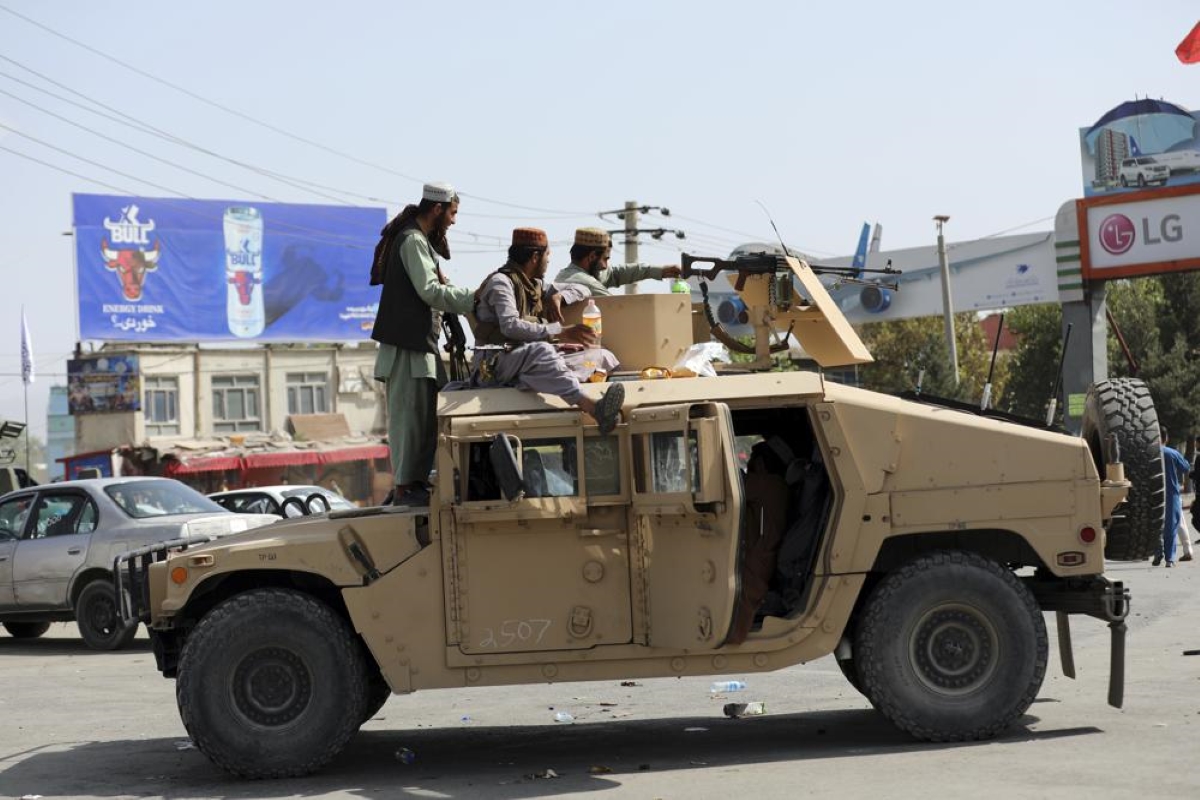Biden reaffirms support for Israel on eve of Passover
US President Joe Biden has reaffirmed his commitment to Israel's security on the eve of the Jewish Passover holiday.
But the issue for President Joe Biden is how his Administration can signal to the world that the US’ perceived lack of resolution in staying the course is just that, a perception, and does not signify an elemental weakness in American policymaking.

Taliban fighters stand guard in front of the Hamid Karzai International Airport, in Kabul, Afghanistan.
The collapse of its Afghanistan endeavour has left the American establishment facing serious foreign and strategic policy challenges. The lessons for the USA’s adversaries and allies from its illconceived and disastrously executed pull-out from that country are varied and differentiated by context.
But the issue for President Joe Biden is how his Administration can signal to the world that the US’ perceived lack of resolution in staying the course is just that, a perception, and does not signify an elemental weakness in American policymaking.
The question uppermost on the minds of experts is what the effect of the Afghan disaster will be on US policy and actions vis-à-vis the Korean peninsula, Eastern Europe and Taiwan. Dealing with North Korea, for example, unless there is credible US deterrence against the Taliban’s excesses, is likely to get tougher.
Advertisement
Pyongyang is going to continue pushing the envelope and for all the talk about the USA’s long-term strategic commitment to its east Asian allies unlike its so-called ‘limited outcome’ mission in Afghanistan, nervousness abounds. On the other hand, even routine humanitarian help such as US food aid to North Korea in times of widespread hunger and malnutrition will be seen as a weakness.
Meanwhile, a resurgent Russia under President Vladimir Putin, which is looking to re-establish its influence in eastern Europe, is cock-a-hoop at the sight of US helicopters hovering over the American Embassy in Kabul to evacuate personnel which has prompted comparisons with Saigon, 1975.
Some experts say the comparison is overstated, and point to the fact that even the Soviets did not see “a window for aggression” when the Americans cut and ran from Vietnam. US troops are, after all, stationed across Europe including in Germany and on Russia’s border with eastern Europe in Poland, it is iterated.
Today’s geopolitics, however, is playing out in a new paradigm with a mutually beneficial Sino-Russian relationship not only gaining global heft but also in a position to act to promote its interests at the slightest American slip. The Kremlin, which suffered the ignominy of having to withdraw Soviet troops from Afghanistan in 1989, understands better than most the impact such a retreat has on friends and foes alike regardless of the spin put on it.
But the most significant impact of President Biden’s decision to get out of Afghanistan on the USA’s broader role in the world is likely to be in relation to Taiwan.
While it is true that the Biden Administration is, for now, committed to keeping US forces stationed across the globe, the uncertainty over Taiwan emanates from the fact that Washington has not ended its strategic ambivalence and announced that it would defend Taiwan militarily in response to any Chinese attack.
Beijing, make no mistake, is the rising power and there is absolute clarity in the Chinese narrative – the ‘renegade province’ of Taiwan will be united with the mainland, and soon. America will feel the full force of the pushback its Afghan policy has allowed various players in the coming months and years.
Advertisement